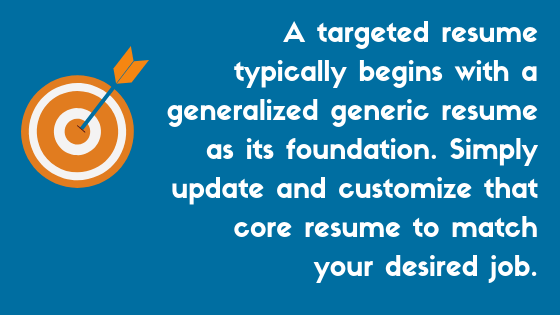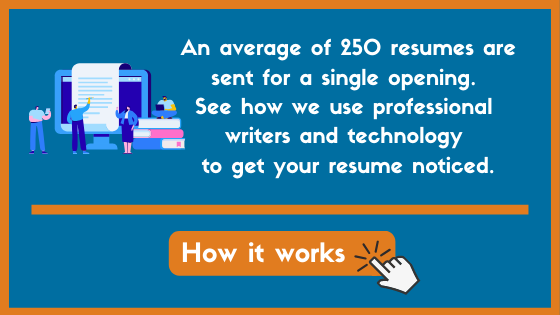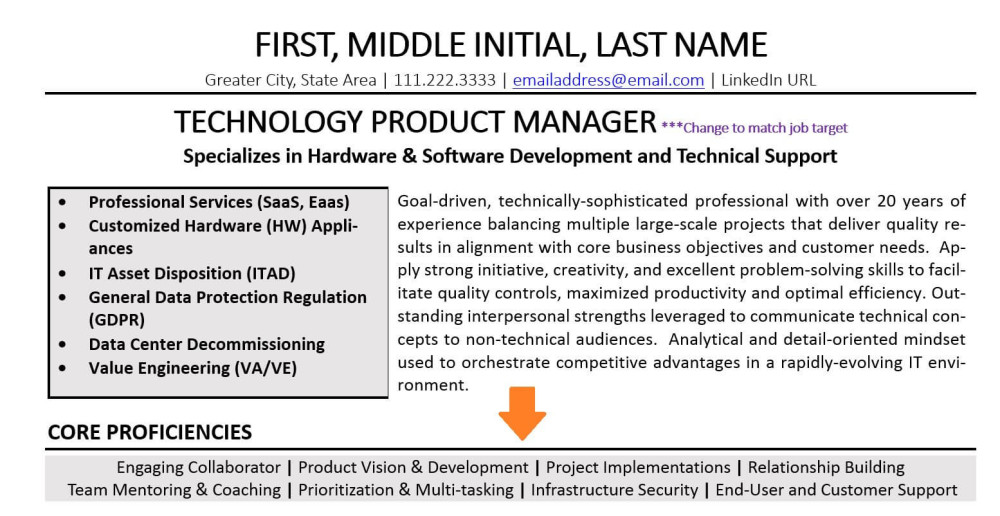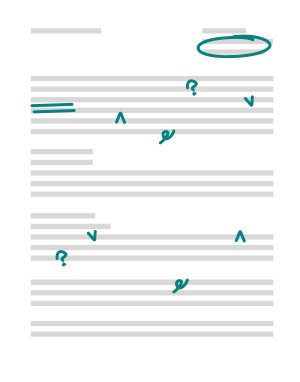
Far too many job seekers continue to use the same resume for every job application. While this sounds like a great idea in principle, it can prove disastrous in practice. Generic resumes may do an effective job highlighting your skills and experience, but they’re less effective at selling you as the ideal fit for any job opening. To accomplish that feat, you need to rely on a more specific type of resume.
You need a resume that is specifically tailored to fit your desired job!
In this post, we will offer the tips you need to write that targeted resume.
What is a targeted resume?
A targeted resume is built around the job you want most. In contrast to a tailored resume, a targeted resume takes a bit of extra time and attention to really zero in on the job. A targeted resume is highly relevant, specific, and customized for the job you're applying to.

Why do I need a targeted resume?
Generic resumes may have worked decades ago, but that’s no longer the case. Thanks to increased job competition, today’s employers can be more selective about who they hire.
As a result, most are looking for candidates whose resumes line up well with the open position they’re trying to fill. If your resume is generic, chances are that it will be rejected. Instead, hiring managers will focus on your competition's resumes--rivals who took the time to create a properly targeted resume.
Through customization, you can create a highly-targeted resume that properly sells your value as an employee. You can tailor your qualifications and employment history to better align with the demands of any open position. Moreover, you can selectively present achievements that demonstrate your value.
Those customization efforts can ensure that your resume has the right tone and detail to present you as the right candidate for the job.
How to write a focused resume
Fortunately, you won’t need to create each resume from scratch. In fact, you should avoid that option--it takes way too long and doesn't dramatically increase your chances of getting an interview.
Instead, you should create one flexible resume that contains all the information you need to apply for any job in your field. You can then use that general resume as a template for any tailored resume you need. Simply select the relevant details for your current resume version, and update information as needed. That way, you don’t have to rewrite everything every time you apply for a job.

Tips to help you create a more targeted resume
Still, some changes will need to be made. You can minimize those changes and streamline the process by following these useful tips:
1. Focus on the summary
A good generic resume usually only requires minor changes to properly create a targeted resume. Your summary should be a focal point for those changes. Once you’ve reviewed the job posting, make changes to your summary to ensure that it properly addresses the qualifications and skills mentioned in that posting. If there are educational requirements, be sure to include those in the summary as well.
An example of a targeted summary:
Goal-driven, technically-sophisticated professional with over 20 years of experience balancing multiple large-scale projects that deliver quality results in alignment with core business objectives and customer needs. Apply strong initiative, creativity, and excellent problem-solving skills to facilitate quality controls, maximized productivity and optimal efficiency. Outstanding interpersonal strengths leveraged to communicate technical concepts to non-technical audiences. Analytical and detail-oriented mindset used to orchestrate competitive advantages in a rapidly-evolving IT environment.
Your summary is supposed to show why you're the perfect fit for this job in 4 to 6 lines. To tailor it, switch out keywords. To target the job further, rewrite your summary as a response to the job posting. For more details, read our full guide writing a good resume summary.
2. Only include relevant details
You should also search through your resume to identify the most relevant details that showcase your suitability for the position. Since your finished resume should be no more than one or two pages in length, you should omit irrelevant information.
Again, you need to refer to the job posting. What is the employer looking for in a job candidate? Which specific skills and experiences does the company require?
When reviewing any job posting, remember that most include the most important requirements near the beginning of the post. Pay close attention to those requirements, but don’t be dismayed if you don’t meet every single one. Most candidates are unlikely to be a perfect match in that respect. However, chances are that you have comparable skills or experiences that you can mention in your resume.
3. Use keywords properly
Resume keywords are essential for any targeted resume. Not only will they ensure that your resume gets read by applicant tracking systems, but their inclusion will more effectively showcase you as a great job candidate.
Remember that most companies use ATS (applicant tracking systems) to automatically screen your resume. You need to keyword optimize the resume with relevant keywords to ensure your resume gets through. As many as 75% of resumes are rejected by the ATS and many times it's because the resume isn't optimized.
Most job postings include keywords related to the position title, as well as the skills, experience, and credentials the employer requires. Once you identify those keywords, insert them throughout your resume where appropriate.
A core competencies section on your resume is the best place to include and easily tailor keywords to whatever position you're applying for.

Let's take a look at this targeted resume example.
Targeted resume example:
4. Don't forget a targeted cover letter
Once you’ve created your targeted resume, the next step is to create a targeted cover letter to send along with it. You should do some research on the company and use that knowledge to create a cover letter that shows you’re a great fit for the job and the company’s culture. If you can accomplish that goal, you can dramatically increase your chances of landing an interview.
The targeted cover letter is, again, a response to the job you most want. If you can convey why you want this particular job at this time with this company, you'll be off to a good start. Follow through by explaining why you're the right fit for the company.
Summary
With a targeted resume, you can get more out of your job application for your dream job! These tips and tricks will help you rise out of the stack of resumes and into the office for an interview.
Good luck with your job search!
Related posts:
Written by
ZipJob Team
The ZipJob team is made up of professional writers and career experts located across the USA and Canada with backgrounds in HR, recruiting, career coaching, job placement, and professional writing.
